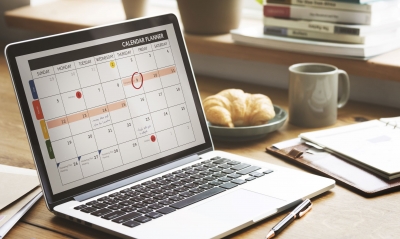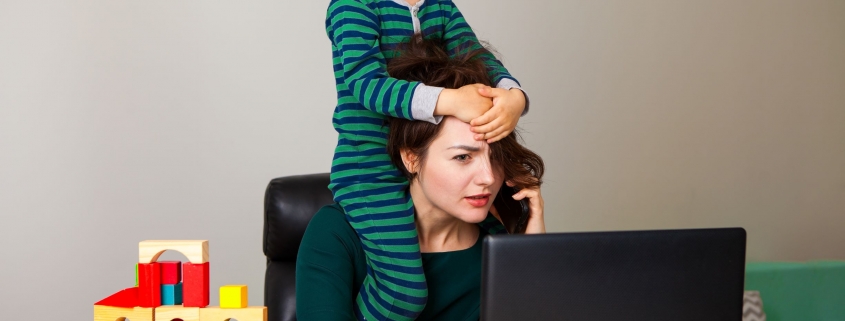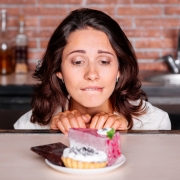How to Start a Self-Care Routine for Your Health and Happiness

The world can swirl with chaos, anxiety, and stress that leaves you with one white-knuckled fist latched precariously to sanity. Finding time for yourself—for your health, for a deep breath—can be hard. But you can start a self-care routine to seek shelter from your personal hurricane of busyness and responsibility.
There’s nothing selfish about escaping into a self-care checklist to seek your center. Everyone needs a chance to exist solely for themselves and their health sometimes. And it’s not a complex process.
Caring for yourself is what it sounds like—committing the time and space to melt away your daily stresses and focus on you. Standing up for your needs can help you experience self-care benefits—from bolstered mental, emotional, and physical health to improved mood, energy, and resilience.
Taking the first step and starting a self-care routine can be the hardest part. Even the best intentions can land you neck-deep in an avalanche of appointments and to-dos. That’s why you need a plan and patience with yourself—because self-care is bigger than booking a single spa session.
Developing your self-care checklist is an individual process of assessing needs and seeking solutions. Peruse the following options to help you start a self-care routine that works for you. Pick and choose what helps achieve your goals, and—since self-care shouldn’t feel like a burden—focus on what you’ll find enjoyable. Most importantly, commit to carving out the time to put these self-care tips into practice.
Sound Sleep is a Solid Way to Start a Self-Care Routine
You hear over and over how much of your life is spent asleep. A third of your time may still not feel like enough, though. That’s because sleep is essential to build many of the pillars of wellness.
Set your bedtime alarm for a noisy reminder to cut the world off and prepare for the most me-centric activity you do. Make sure to practice good sleep habits:
- avoid caffeine and alcohol close to bedtime
- wind down with music, meditation, or stretching
- turn off the screens
- set a comfortable temperature
- tuck in for at least seven hours
Your Self-Care Checklist Must Include Clearing Your Schedule

The world doesn’t care about your plans. It can steamroll your dinner reservation, interrupt evening me-time, or destroy a whole vacation. But the best way to keep your daily to-do’s from derailing a much-needed trip down your self-care checklist is to schedule time for yourself.
Block out your calendar—that means turning off the ringer on your phone, too—so you can dedicate time and energy to practicing the self-care tips that speak to you.
Claim Your Space and Maximize Its Calming Properties
Setting aside your own calming corner of the world can put you in the right physical and mental space for starting a self-care routine. But even the most soothing color scheme can’t overcome clutter and chaos in a room. Decluttering your life and spaces can help you find your center in a stressful world.
Some people like organizing and cleaning because it’s calming. Even if that’s not for you, creating a space that’s free of reminders of your daily stresses is a good idea. Meditation among the laundry landmines, toy traps, or—worst of all—stacks of work isn’t as calming as it could be.
Soothe with Sensory Experiences
Stress is a reaction to troublesome sensory information. So the self-care solution is to feed your body a buffet of soothing sensations.
Wrap yourself in soft, comfortable material—a robe or loungewear works. Refresh your mind with calming scents. Flip off the harsh blue lights that dominate your life and try soft candlelight instead. Fill the room with your favorite songs or the calming soundtrack of nature.
Run your favorite stress-fighting bath or dedicate an afternoon each week to fully embracing the hygge lifestyle. Head to the hammock in the backyard with a book. Hike a picturesque trail. Whatever comforting option you choose, stimulate your senses in a pleasing instead of punishing way.
Eat Up Healthy Dietary Options
Emotional eating is easily confused with self-care. But you don’t want to lose sight of the care part of self-care in your search for comfort.
Eating healthy foods isn’t a punishment. Quite the opposite. It’s a caring gesture key to feeling good. And it can be delicious, too. Feed your body nutritious meals and snacks that pack the vitamins and minerals needed to help you feel your best.
Opt for a plant-heavy approach with easy-to-digest foods that are also good for your gut. That way you can spend your self-care time feeling light and energetic instead of sluggish and slumped over from overdoing it on traditional comfort foods.
Attempt to Achieve Serenity Your Way
Serenity is the ultimate goal of any self-care routine. So stressing about finding the most relaxing and serene experiences is positively counterproductive.
Some people turn to meditation. And there’s evidence showing meditation benefits the brain and your stress levels. But that’s only if mediation works for you. It takes practice to perfect, so give yourself room for mediation to be a work-in-progress.
Yoga is great. It has a long history of peaceful practice. But if you are frustrated by yoga—because you are a beginner or your body simply doesn’t bend that way yet—skip it or find a form that works for you.
Your path to peace and serenity may not look like everybody else’s. And that’s OK. Try different approaches and stick with what feels right.
Stimulate Your Mind
Starting a self-care routine doesn’t mean putting yourself in a stimulation-free bubble. Using your brain for your enjoyment—not for work or figuring out other people’s problems—is a powerful way to care for yourself.
Stop if your mental activities start to feel like work. There are plenty of good options to engage your intellect in service of self-care:
- read a book, short story, or magazine
- play word, trivia, or brain games
- have an enlightening conversation
- critically think through a piece of pop culture you enjoy
- write a story or journal entry
- play a piece of music on your instrument of choice—or just jam without a structure
Experience the Calming Powers of the Outdoors
Nature can nurture your soul and buoy your mood. Study after study has shown why being outside is important for stress relief, focus, and calm.
Step out your door to take deep breathes of fresh air. Visit a nearby natural escape to experience the sights, sounds, and smells of the forest, beach, or park.
Social Support Reinforces Your Self-Care Efforts
Self-care doesn’t require isolation. Humans are social creatures who can benefit from contact with others. Keeping the interactions playful, fun, and easy-going will help you experience the mental and emotional benefits of maintaining your social health.
If you’re an introvert, don’t worry. Interact on your own terms to avoid being overwhelmed by interactions meant to help your mental state.
And if you just can’t deal with another person, there’s a solution. Snuggling up, playing with, or just soaking up love from your favorite furry friend is a great source of self-care support. Pets, after all, can help with mood, stability, and overall happiness.
Slay Negativity with Self-Compassion
You might not be able to tell from some people’s social feeds, but nobody is perfect at self-care. Learning to care for yourself is a process.
Starting the self-care routine you need and deserve might not be as effective as you’d hoped the first time. Maybe you lose focus during mediation, a bug bites you on your peaceful nature walk, or the dog jumps into your bath.
Give yourself a break by practicing self-compassion and building in flexibility. Even imperfect self-care is a step in the right direction—toward a healthier, happier, less-stressed you.
References
https://www.womenshealthmag.com/health/a24886599/self-care-routine-tips/
https://www.success.com/12-self-care-tips-for-busy-people/
https://www.prevention.com/health/mental-health/g25935471/self-care-routine/
https://www.health.harvard.edu/blog/self-care-4-ways-nourish-body-soul-2017111612736
https://www.healthline.com/health-news/self-care-is-not-just-treating-yourself












